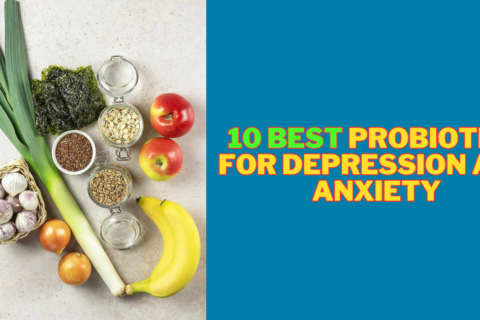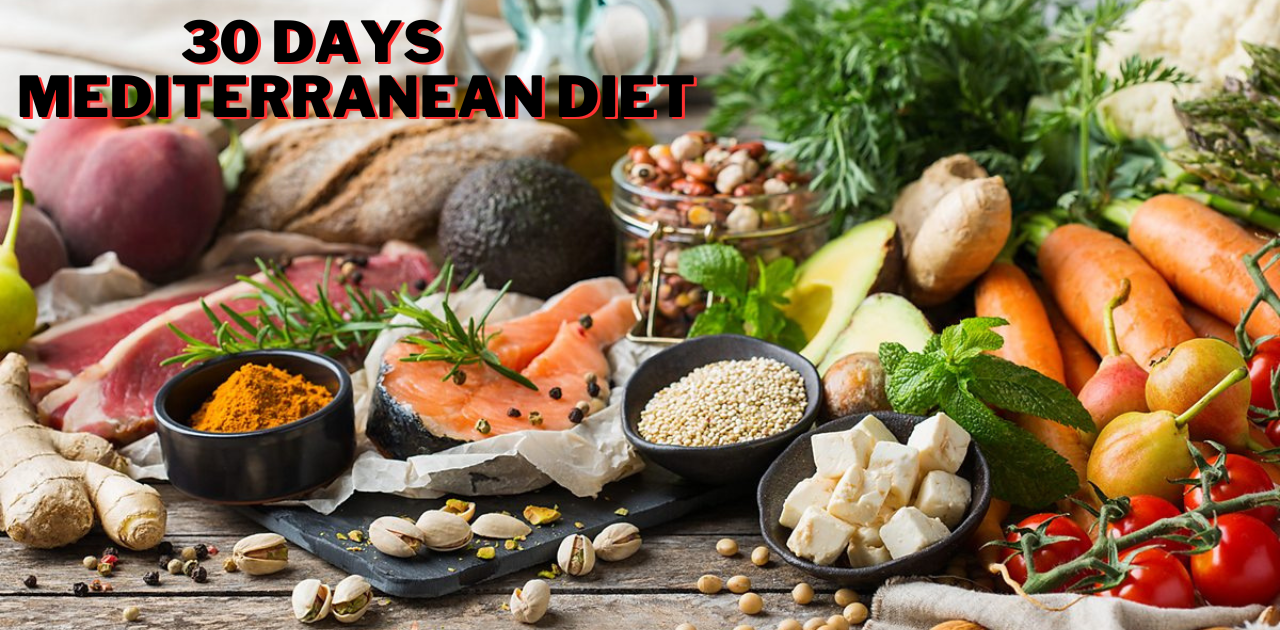What is the Mediterranean Diet?
The Mediterranean diet is a time-tested way of eating that emphasizes the enjoyment of food and the health benefits that come with a diet rich in fresh, wholesome ingredients. This diet reflects the traditional cooking styles of countries bordering the Mediterranean Sea, including Greece, Italy, and Spain, where people historically lived longer and suffered less from chronic diseases.
Origins of the Mediterranean Diet
The origins of the Mediterranean diet can be traced back to the 1960s, when researchers observed that the populations in these regions had significantly lower rates of heart disease compared to other parts of the world. This observation led to extensive studies, which revealed that the diet’s reliance on whole, minimally processed foods, healthy fats, and plant-based ingredients played a crucial role in these health outcomes.
Core Principles of the Mediterranean Diet
At the heart of the Mediterranean diet are several core principles that make it both a healthy and enjoyable way to eat:
- Fruits and Vegetables: The diet is rich in a variety of fresh fruits and vegetables, providing essential vitamins, minerals, and antioxidants.
- Whole Grains: Foods like whole wheat bread, brown rice, barley, and oats are staples, offering fiber and sustained energy.
- Healthy Fats: Extra virgin olive oil is the primary source of fat, complemented by nuts, seeds, and fatty fish.
- Lean Proteins: The diet emphasizes fish, seafood, and plant-based proteins such as legumes, with limited consumption of red meat.
- Herbs and Spices: Flavor is enhanced with natural herbs and spices, reducing the need for added salt or sugar.
- Social Eating: Meals are often shared with family and friends, fostering a sense of community and well-being.
Why Choose the Mediterranean Diet?
Choosing the Mediterranean diet is an investment in your long-term health and quality of life. It’s not just about eating well; it’s about embracing a lifestyle that promotes balance, sustainability, and enjoyment of food.
Health Benefits of the Mediterranean Diet
The health benefits of the Mediterranean diet are well-documented and include:
- Heart Health: The diet is high in monounsaturated fats from olive oil and omega-3 fatty acids from fish, which are known to support cardiovascular health by lowering LDL cholesterol and reducing inflammation.
- Weight Loss: The emphasis on whole, unprocessed foods and portion control can help with weight management and prevent obesity-related diseases.
- Cognitive Function: Research suggests that the Mediterranean diet may reduce the risk of cognitive decline and dementia due to its high content of antioxidants and healthy fats.
- Diabetes Management: The diet’s focus on whole grains, fruits, and vegetables helps regulate blood sugar levels, making it beneficial for managing type 2 diabetes.
- Longevity: Studies show that those who adhere to the Mediterranean diet are more likely to live longer, healthier lives.
Weight Loss and the Mediterranean Diet
Unlike many restrictive diets, the Mediterranean diet allows you to enjoy a wide variety of foods in moderation, making it easier to stick to and more enjoyable. This diet naturally supports weight loss by focusing on nutrient-dense foods that keep you full and satisfied.
Long-Term Sustainability
The Mediterranean diet is designed for long-term sustainability. Its flexibility and emphasis on whole, satisfying foods make it easy to maintain, even in the long run. Plus, the diet’s focus on enjoying food and eating mindfully helps you develop a healthier relationship with food.
Getting Started with Your 30-Day Mediterranean Diet Plan
Preparing Your Pantry for the Mediterranean Diet
To set yourself up for success, it’s essential to prepare your pantry with Mediterranean diet staples. This will make meal planning and cooking much easier, ensuring you have everything you need to create delicious, nutritious meals.
Essential Ingredients for the Mediterranean Diet
- Produce: Stock up on a variety of fresh fruits like berries, apples, oranges, and vegetables such as tomatoes, cucumbers, zucchini, and leafy greens. These will be the foundation of your meals.
- Whole Grains: Incorporate whole grains such as whole wheat bread, brown rice, quinoa, barley, and oats. These grains provide fiber and sustained energy.
- Proteins: Keep a selection of lean proteins on hand, including salmon, sardines, chicken breast, eggs, chickpeas, and lentils. These are essential for muscle maintenance and overall health.
- Healthy Fats: Olive oil is a must-have, along with nuts (almonds, walnuts), and seeds (chia, flax). These fats are heart-healthy and add richness to your meals.
- Dairy: Include dairy products like Greek yogurt, feta cheese, and parmesan. These offer calcium and protein while adding flavor to your dishes.
- Herbs and Spices: Fresh herbs such as basil, oregano, and rosemary, along with garlic, onions, and spices like cumin and paprika, are key to authentic Mediterranean flavors.
Creating a Mediterranean Diet Shopping List
When creating your shopping list, focus on fresh, seasonal produce, high-quality proteins, and whole grains. This will not only ensure your meals are healthy but also full of flavor.
Meal Prep Tips for Success
Successful meal prep is one of the keys to staying on track with the Mediterranean diet. With a little planning, you can save time during the week and ensure you always have healthy meals ready to go.
Weekly Meal Prep for the Mediterranean Diet
Set aside a few hours each week to chop vegetables, cook grains, and prepare proteins. Store these in the fridge so you can easily assemble meals throughout the week. For example, cook a batch of quinoa and store it in airtight containers for use in salads or as a side dish.
Time-Saving Mediterranean Diet Cooking Tips
- Use a slow cooker: Prepare soups, stews, and other dishes in a slow cooker. This allows you to set it and forget it, making meal prep easier.
- Pre-marinate proteins: Marinate chicken, fish, or tofu ahead of time so they’re ready to cook whenever you need them.
- Make dressings and sauces ahead: Prepare homemade salad dressings, sauces, and dips in advance to save time and enhance the flavors of your dishes.
Week 1: Embracing Fresh Flavors
Day 1-7: Simple and Fresh Mediterranean Meals
During the first week, focus on incorporating fresh, vibrant flavors into your meals. The simplicity of Mediterranean cuisine allows the natural taste of the ingredients to shine through, making each meal a delightful experience.
Breakfast Ideas: Greek Yogurt and Fresh Fruits
Kickstart your day with a bowl of Greek yogurt topped with honey, chopped nuts, and fresh berries. This breakfast is not only delicious but also rich in protein, probiotics, and antioxidants, helping to support gut health and provide sustained energy.
Lunch Ideas: Mediterranean Salads and Whole Grains
For lunch, prepare a Mediterranean salad with mixed greens, cucumbers, tomatoes, olives, and feta cheese. Drizzle with extra virgin olive oil and lemon juice for a refreshing, nutrient-packed meal. Pair it with a slice of whole-grain bread or a small serving of quinoa.
Dinner Ideas: Grilled Chicken and Roasted Vegetables
Dinner can be as simple as grilled chicken breast served with a side of roasted vegetables like bell peppers, zucchini, and eggplant. Toss the vegetables in olive oil and season with fresh herbs like rosemary and thyme before roasting to perfection.
Snack Options: Fresh Fruit and Nuts
Snack on fresh fruit such as an apple or a handful of almonds. Alternatively, enjoy a small piece of dark chocolate to satisfy your sweet tooth while benefiting from its antioxidants.
Week 2: Exploring New Ingredients
Day 8-14: Introducing Plant-Based Proteins
In the second week, you’ll begin exploring new ingredients, particularly plant-based proteins like legumes and ancient grains. These additions will not only diversify your diet but also enhance your intake of fiber and essential nutrients.
Breakfast Ideas: Avocado Toast with Whole Grains
Start your day with avocado toast on whole-grain bread, topped with a sprinkle of sea salt, chili flakes, and a drizzle of olive oil. Avocados are packed with healthy monounsaturated fats, fiber, and a variety of vitamins and minerals, making this breakfast both satisfying and nutritious.
Lunch Ideas: Quinoa Salads with Chickpeas
For lunch, try a quinoa salad with chickpeas, diced vegetables, and fresh herbs like parsley and mint. Toss with a lemon-tahini dressing for a hearty and flavorful meal that’s rich in protein and fiber.
Dinner Ideas: Baked Salmon with Sautéed Greens
Dinner could feature baked salmon seasoned with dill, lemon, and garlic, served alongside sautéed spinach or kale. The omega-3 fatty acids in salmon are known for their anti-inflammatory properties, while the greens provide essential vitamins and minerals.
Snack Options: Hummus with Vegetables
Snack on hummus paired with carrot sticks, cucumber slices, or gluten-free rice cakes. Hummus is a great source of plant-based protein and healthy fats, making it a satisfying snack option that also supports heart health.
Week 3: Enhancing Your Meals with Herbs and Spices
Day 15-21: Elevating Flavors with Mediterranean Spices
As you move into the third week, it’s time to elevate your meals with the rich and aromatic herbs and spices that define Mediterranean cuisine. These natural flavor enhancers not only make your meals more delicious but also offer additional health benefits.
Breakfast Ideas: Mediterranean Omelets
Prepare a Mediterranean-style omelet filled with spinach, tomatoes, feta cheese, and oregano. This savory breakfast is packed with protein, vitamins, and minerals, and it’s packed with protein, vitamins, and minerals, making it a nutritious and satisfying way to start your day
Lunch Ideas: Spiced Lentil Soup
For lunch, enjoy a hearty lentil soup seasoned with cumin, coriander, and paprika. Lentils are a powerhouse of plant-based protein and fiber, and the spices add depth of flavor and additional anti-inflammatory benefits.
Dinner Ideas: Stuffed Bell Peppers with Ground Turkey
For dinner, try bell peppers stuffed with a mixture of ground turkey, brown rice, and herbs like basil and parsley. Bake until the peppers are tender, and serve with a side salad for a complete meal that’s full of flavor and nutrients.
Snack Options: Olives and Feta Cheese
Snack on a small bowl of olives paired with a few cubes of feta cheese. Olives are rich in healthy fats and antioxidants, while feta cheese provides calcium and protein, making this a balanced and satisfying snack.
Day 22-30: Mastering the Mediterranean Lifestyle
In the final week of your 30-day journey, you’ll focus on creating balanced, diverse meals that embody the essence of the Mediterranean diet. By now, you should feel more comfortable with the diet and confident in your ability to create delicious, healthful meals.
Breakfast Ideas: Whole Grain Pancakes with Fresh Berries
Start your day with whole-grain pancakes topped with fresh berries and a drizzle of honey. This breakfast is not only delicious but also provides complex carbohydrates, fiber, and antioxidants to keep you energized throughout the morning.
Lunch Ideas: Greek Salad with Grilled Chicken
For lunch, enjoy a classic Greek salad made with cucumbers, tomatoes, olives, red onions, and feta cheese, topped with grilled chicken breast. This meal is rich in protein, healthy fats, and a variety of vitamins and minerals.
Dinner Ideas: Mediterranean Pasta with Olive Oil and Garlic
For dinner, prepare a simple pasta dish using whole-grain pasta, sautéed garlic, cherry tomatoes, spinach, and a generous drizzle of olive oil. Top with grated parmesan cheese and fresh basil for a satisfying, heart-healthy meal.
Snack Options: Yogurt with Honey and Walnuts
Snack on a small bowl of Greek yogurt topped with honey and walnuts. This snack is high in protein, healthy fats, and antioxidants, making it a great choice for maintaining energy levels and supporting overall health.
The Importance of Exercise in the Mediterranean Lifestyle
While diet plays a crucial role in the Mediterranean lifestyle, regular physical activity is equally important. Incorporating exercise into your daily routine not only helps maintain a healthy weight but also supports cardiovascular health, muscle strength, and overall well-being.
Exercise Recommendations for a Balanced Life
- Moderate Exercise: Aim for at least 30 minutes of moderate exercise most days of the week. Activities such as walking, swimming, cycling, or dancing are great options that complement the Mediterranean way of life.
- Strength Training: Incorporate strength training exercises at least twice a week. This can include bodyweight exercises like push-ups, squats, and lunges, or using weights to build muscle and improve bone health.
- Flexibility and Balance: Include activities that enhance flexibility and balance, such as yoga or Pilates. These practices not only improve physical health but also promote mental relaxation and stress reduction.
Mediterranean Diet-Friendly Recipes
Easy Mediterranean Breakfast Recipes
- Start your day with these simple and delicious breakfast ideas that are not only quick to prepare but also packed with nutrients.
Greek Yogurt with Honey and Nuts
- A bowl of Greek yogurt topped with honey, nuts, and fresh fruit is a classic Mediterranean breakfast. It’s high in protein, healthy fats, and antioxidants, making it a perfect way to start your day with sustained energy.
Mediterranean-Style Omelets
- Prepare an omelet with spinach, tomatoes, feta cheese, and fresh herbs like oregano and dill. This savory dish is rich in vitamins, minerals, and protein, ensuring a nutritious start to your morning.
Healthy Mediterranean Lunch Recipes
- Keep your energy up throughout the day with these healthy and flavorful Mediterranean lunch ideas.
Caprese Salad with Fresh Mozzarella
- Combine fresh tomatoes, mozzarella, basil, and a drizzle of balsamic vinegar for a light and refreshing Caprese salad. Serve with a slice of whole-grain bread to add fiber and make it a more filling meal.
Quinoa Salad with Vegetables
- Quinoa salad is a versatile and nutrient-rich lunch option. Mix cooked quinoa with diced vegetables, chickpeas, and a lemon-tahini dressing. This meal is high in protein, fiber, and essential vitamins, keeping you full and satisfied.
Delicious Mediterranean Dinner Recipes
- End your day with these flavorful and satisfying dinner recipes that highlight the best of Mediterranean cuisine.
Baked Cod with Tomato-Olive Sauce
- Bake cod with a sauce made from tomatoes, olives, garlic, and herbs. This dish is rich in omega-3 fatty acids, protein, and antioxidants, making it a heart-healthy choice. Serve with a side of steamed vegetables and whole-grain couscous for a balanced meal.
Grilled Chicken with Roasted Vegetables
- Grill chicken breasts and serve with roasted vegetables like zucchini, eggplant, and bell peppers. Toss the vegetables in olive oil and fresh herbs for a dish that’s as nutritious as it is delicious.
Mediterranean Snack Ideas
- Snack smart with these Mediterranean diet-friendly options that are both satisfying and nutritious.
Dark Chocolate and Fresh Fruits
- Enjoy a small piece of dark chocolate paired with fresh fruits like strawberries or figs. This combination satisfies sweet cravings while providing antioxidants and fiber.
FODMAP-Friendly Rice Cakes and Boiled Eggs
- For a low-FODMAP option, try gluten-free rice cakes topped with boiled eggs or avocado slices. These snacks are easy to prepare, portable, and provide a good balance of protein and healthy fats.
Disclaimer
The content on this blog is for general information purposes only and should not be considered medical or professional advice. Always consult a healthcare provider before making changes to your diet or health routine.
Visit EatingWell For More Informations
Conclusion: The Mediterranean Diet for Life
Recap of the Benefits of the Mediterranean Diet
By following this 30-day Mediterranean diet plan, you’ve not only improved your health but also discovered a new way of eating that is both enjoyable and sustainable. The benefits of the Mediterranean diet are numerous, from heart health to weight management and beyond.
Making the Mediterranean Diet a Long-Term Lifestyle
The Mediterranean diet isn’t just a diet—it’s a lifestyle that can be maintained for years to come. Continue to explore new recipes, try different ingredients, and enjoy the process of cooking and sharing meals with loved ones. The key is to make this way of eating a natural and enjoyable part of your everyday life.
 Keto Women
Keto WomenKeto Diet for Women Over 50: Secrets to Healthy Aging
Keto Diet for Women Over 50: Secrets to Healthy Aging Aging is a natural part…
August 8, 2024 0 Mental Health Prebiotics
Mental Health Prebiotics10 best probiotics for depression and anxiety
Understanding Prebiotics and Probiotics: Prebiotics are non-digestible fibers that feed beneficial bacteria in the gut,…
August 7, 2024 0 Plant Based Prebiotics
Plant Based PrebioticsSuper Plant Based Prebiotic Foods for Gut Health
One of the lesser-discussed yet incredibly important aspects of this dietary choice is the role…
August 3, 2024 1 Comment

The “Aviator” field has gained approval owed to its peerless gameplay, which stands out from standard gambling games. In this article, we intent explore the ranking advantages of this plot that be placed it appealing to tons players.
1. Stark Gameplay
Anyone of the main advantages of Aviator Online is its simplicity. The rules are intuitively tranquil to grasp: the especially bettor needs to situation a risk and click the “lolly in sight” button up front the plain flies away. This mechanic makes the game at hand to a far-reaching audience, regardless of their adventure with gambling.
2. Mind-blowing Dynamics
“Aviator” is unpredictable, adding an adrenaline move it to the gaming experience. The unbroken can out during legitimate a handful seconds or a handful minutes, and it’s up to the entertainer to make up one’s mind when to stop. This vigorous keeps the player’s prominence and maintains concern engaged cranny of the game.
3. Ability to Control Winnings
Players settle on when to money away from, which adds a strategic factor to the game. It’s not reasonable about fate but also the faculty to evaluate endanger properly. Those who be partial to to button their actions and favouritism the outcome resolve secure “Aviator” strikingly engaging.
4. Transparency and Fairness
“Aviator” stands unconscious as regards its transparency and reliability. Players can turn that the results are not manipulated about unseen algorithms, as the recreation is based on a random number mechanic. This builds dependability and makes the sport act free in the eyes of users.
5. Opportunity throughout Undersized Bets
Another gain of the game is the skill to niche small bets. This makes “Aviator” accessible to players with varying financial means, allowing them to slowly prolong their winnings without significant risk.
6. Popular Aspect
The nervy also attracts players with its collective aspect. In “Aviator,” you can watch other players’ bets and winnings in real-time, creating a impression of community and competition.
Conclusion
“Aviator” is a willing that combines cleanness, energy, and crucial elements. It appeals to both newcomers and master players correct to the genius to conduct winnings and the availability of under age bets. The transparency of the gameplay and public interactions combine additional value, making “Aviator” harmonious of the most sought-after games on the market.
The history of command coins, and what makes collecting command coins special.
The best places to acquire commander coins, to steer clear of fraudsters.
fireman challenge coins https://www.command-coins.com/blogs/articles/custom-firefighter-challenge-coins/ .
Сколько стоит диплом высшего и среднего образования и как его получить?
Официальная покупка аттестата о среднем образовании в Москве и других городах
Диплом ВУЗа купить официально с упрощенным обучением в Москве
Всё, что нужно знать о покупке аттестата о среднем образовании
Полезные советы по покупке диплома о высшем образовании без риска
Процесс получения диплома стоматолога: реально ли это сделать быстро?
Реально ли приобрести диплом стоматолога? Основные этапы
Официальная покупка школьного аттестата с упрощенным обучением в Москве
продамус промокод скидка на подключение продамус промокод скидка на подключение .
Процесс получения диплома стоматолога: реально ли это сделать быстро?
Как не стать жертвой мошенников при покупке диплома о среднем полном образовании